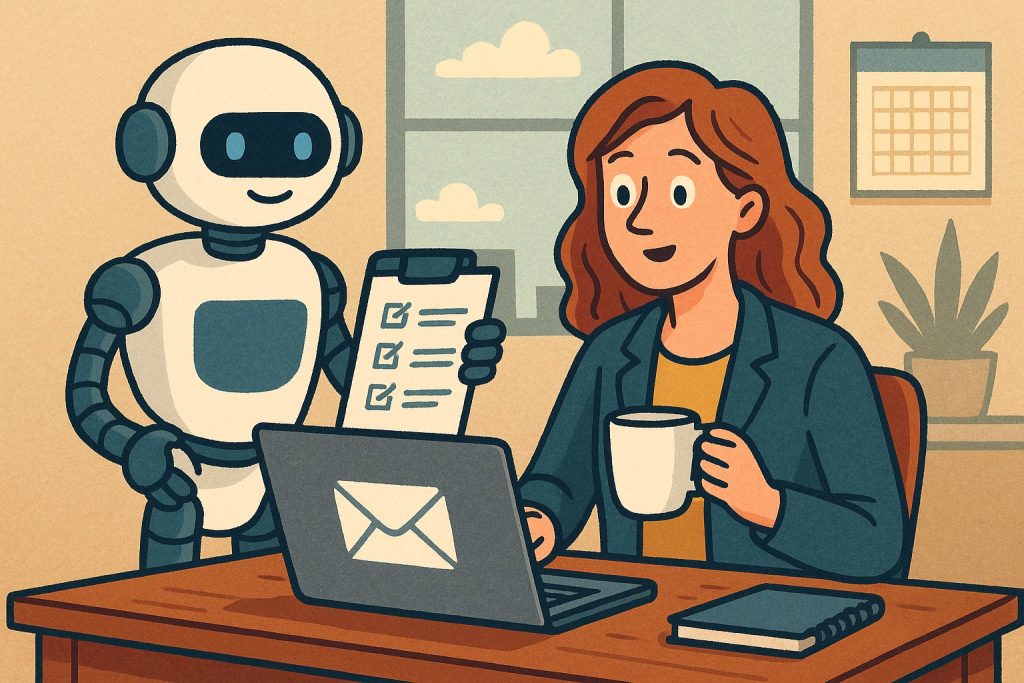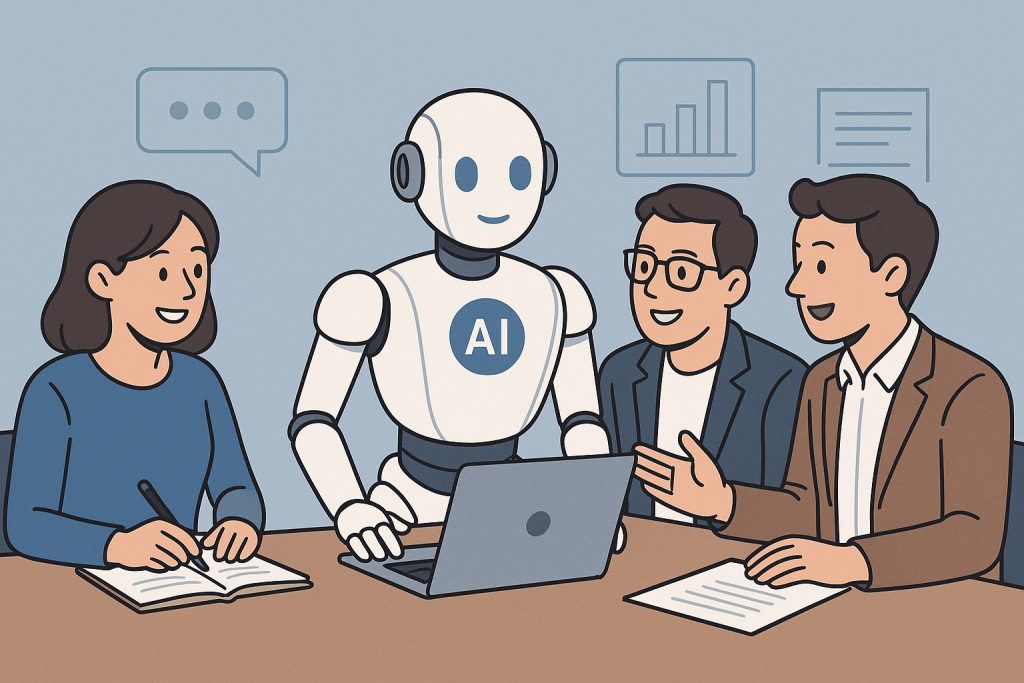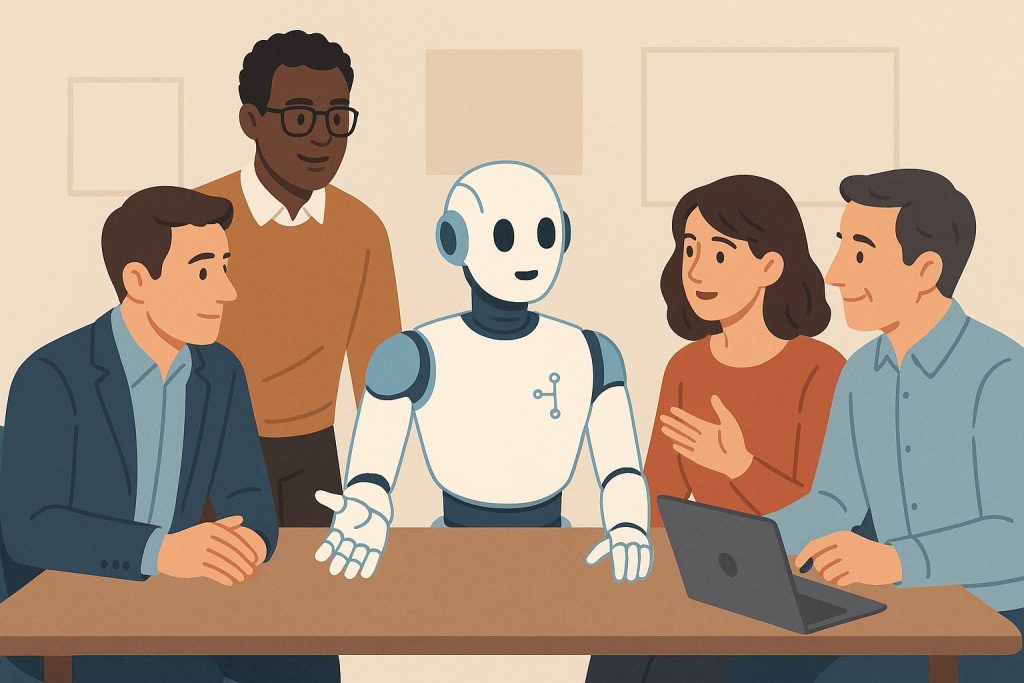You sit down at your desk, coffee in hand, and boom your AI agent has already triaged your inbox, scheduled your meetings and drafted a proposal. Sounds like sci-fi? It’s not. It’s Tuesday.
Imagine hiring an employee who never sleeps, never forgets and learns every single day. That’s what AI agents are becoming, digital teammates who can handle repetitive tasks, make decisions and even adapt on the fly.
These aren’t just smarter chatbots. They’re full-on autonomous systems changing how work gets done. In this post, we’ll explore how AI agents work, who’s using them, and what you can do today to future-proof your career and business.
From Chatbot to Powerhouse: What Are AI Agents, Really?
If Siri is your chatty cousin, AI agents are the no-nonsense COO you didn’t know you had.
AI agents are software entities that don’t just take instructions, they make decisions. They can plan tasks, execute them, adapt when things change, and even loop back for improvements. They’re the next step up from static automation tools.
Take AutoGPT or GPT Engineer; these systems can write code, test it and fix bugs with minimal human input. Devin, an AI created by Cognition, acts as a fully autonomous software engineer. It writes code, deploys apps, manages GitHub repos and even runs its own development environment (Zamora).
Start small. Use tools like AgentGPT or ChatDev to handle recurring tasks like email drafting or research summaries. The more you explore, the more possibilities you’ll uncover.
According to McKinsey, up to 30% of the hours worked globally could be automated by 2030 (McKinsey & Company). As Sam Altman, CEO of OpenAI, puts it: “The future of productivity isn’t about doing more. It’s about delegating better.”
Rewriting the Resume: Which Jobs Are Most Affected?
Spoiler alert: If your job involves anything repeatable or rule-based, you’re on the radar.
AI agents are already changing job roles in software development, customer support, marketing, and beyond. They’re not exactly coming for your job, but they’re taking over the tedious parts. Developers can now generate boilerplate code in seconds. Marketers can automate campaign analysis and A/B testing. Customer support agents? They’ve got digital backups that can handle FAQs while they focus on complex queries.
Want to stay ahead? Audit your current role. List out the tasks you do repeatedly, these are the first to go to an AI agent. The rest is where you shine.
A 2024 MIT study found that AI agents can cut developer time on routine coding tasks by up to 40% (Zamora). As AI pioneer Andrew Ng says, “Automation doesn’t take jobs; it takes tasks. The smart ones will evolve.”
Your New Team Member: How to Integrate AI Agents at Work
Think onboarding a new hire is tough? Your AI agent doesn’t even need a desk.
Bringing AI agents into your workflow doesn’t require an overhaul. Many integrate with Slack, Notion, GitHub, Zapier, and Google Workspace. You can assign them to summarize documents, draft content, send follow-ups, or even conduct user research with a prompt or two.
And here’s the kicker, they don’t get tired, they don’t miss deadlines and they learn fast.
Start by picking one specific workflow, like managing a content calendar or sales pipeline. Then, try a no-code agent like SuperAGI or LangChain-powered tools to start delegating.
Gartner predicts that by 2026, 80% of enterprises will be using AI agents in operational tasks. Jensen Huang, CEO of NVIDIA, says it best: “You’ll have an AI assistant before you have a flying car. And it’ll actually be useful.”

Not All Agents Are Equal: What to Look For Before You Deploy
All that glitters isn’t GPT. Some agents still need training wheels.
It’s tempting to dive into the flashiest tool on the market, but not all AI agents are built alike. Some require coding knowledge, others lack memory or transparency, and a few simply aren’t mature enough for critical work.
If you’re in a regulated industry, compliance and data privacy become non-negotiable. Look for agents that offer customization, logging, and integration with your existing tools. Don’t just ask what it can do—ask how it handles failure and learning.
Start with open-source tools for flexibility, or choose well-documented platforms with active communities. This will save you hours (and headaches) down the line.
A Hugging Face survey in 2025 found that 62% of developers prefer open-source agents for their transparency and control. As Linus Torvalds, creator of Linux, said: “The right AI tool is like the right pair of shoes—it should fit your workflow, not reshape it.”
Future-Proofing Yourself: How to Stay Relevant in the Age of AI Agents
AI might take your routine, but it can’t take your creativity—or your curiosity.
As machines handle more of the “what,” it’s your job to focus on the “why” and “how.” Human strengths—like empathy, storytelling, strategy, and design thinking—will become more valuable, not less.
Treat your AI agent like an intern. It needs your guidance, context, and vision. Learn how to write great prompts. Understand the basics of AI logic. Stay updated on ethical implications and how decisions are made behind the curtain.
Enroll in a course on prompt engineering or experiment with free agent builders to get hands-on experience. The more you understand what’s under the hood, the more powerful your partnership with AI becomes.
LinkedIn’s 2025 Workplace Learning Report named “AI literacy” the #1 skill for tech professionals (LinkedIn). Fei-Fei Li, co-director of Stanford’s Human-Centered AI Institute, nailed it: “The secret sauce is not knowing AI—it’s knowing how to talk to it.”
You vs. AI? More Like You + AI
The AI agent era is already here, and it’s not about losing control—it’s about gaining leverage. These tools aren’t here to replace you. They’re here to make you faster, sharper, and more creative.
If you embrace the change, learn the tools, and focus on your irreplaceably human skills, you won’t just survive this tech shift—you’ll ride the wave to something better.
Don’t fear the agent—become the architect.

Works Cited
LinkedIn. 2025 Workplace Learning Report: Focus on Skills for the AI-Powered Future. LinkedIn Learning, Apr. 2025, learning.linkedin.com/resources/workplace-learning-report.
McKinsey & Company. The Future of Work after COVID-19. McKinsey Global Institute, 18 Feb. 2021, www.mckinsey.com/mgi/overview/in-the-news/the-future-of-work-after-covid-19.
Vincent, James. “AI Agents Are Coming—And They Might Be the Next Big Thing in Tech.” The Verge, 10 Oct. 2024, www.theverge.com/2024/10/10/24266333/ai-agents-assistants-openai-google-deepmind-bots. Accessed 12 May 2025.

